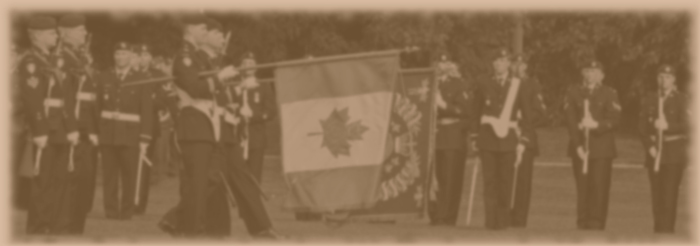Topic: Commentary

Faith isn't the problem
Sometimes, it's how you represent that undermines your intent.
I recently attended a funeral, and the Minister who conducted the service said something that resonated: "Faith isn't the problem, the problem is religion."
"That's interesting," I thought, "it's not what you believe, it's how you practice it that can be the problem." The reason I found it interesting is that I saw an immediate parallel in the way some soldiers, serving or retired, apply similar methods to their declarations of regimental loyalty.
For many, belonging to a regiment is an entry into a brotherhood (apply variable gender as needed) that extends both laterally through one's own generation as well as forward and backward in time to all preceding and succeeding generations of regimental soldiers. Accepting this. they devote themselves to earning a rightful place among peers in regimental service (spanning generations and divested of rank stratification). That common attribute of belonging is taken as a starting point, and everything that follows is an opportunity to prove that they too deserve to belong, in thought, word and deed. They strive to strengthen the regimental family by being a strong component of its structure. They consciously work, in all that they do, to represent the regiment's "brand."
For others, "regiment" is an identity they take unto themselves. They use it to declare their affiliation, and assume rights of respect, honour and reward because of that affiliation. To them, belonging to a regiment justifies their actions, and behaviors molded in one era might be repeated (despite degraded social acceptability) because that's what they did "back in the day."
Those in the first group, I want to believe they are the majority, are content to be the quiet professionals. They adopt a minimum of overt regimental branding, and often then only in careful context. They maintain regimental standards of proficiency, professionalism and honour, often leaving their regimental identity to be discovered afterwards by an outside observer, or given only on direct inquiry. They walk a path of regimental pride with a personal attitude of peace and calm, they know that brotherhood stands behind them, and they offer support more often than they seek it.
The second group lead with that regimental identity. They are the ones festooned with regimental colour and accoutrements, even in the most sedate environment. Where many might wear one or two lapel pins, they will wear a flurry of them, representing every group they belong to, often in multiples, and for each event they have attended that issued a representative pin. This over the top approach may play well among their like-minded fellows, but it also undermines the intent. The tacit intent to attract new members into that long-standing group of regimental supporters.
At any regimental event, that noisome group of regimental supporters is readily noticed, and most certainly noticed by young soldiers on parade. In those young minds, that recognizable group, which by habit clusters into a tight and loud subset of onlookers, becomes the imprinted image of what appears to be expected of them on retirement. (The larger group of quieter ex-regimental soldiers is often overlooked, they remain dispersed and more subdued, by personal and collective habit.) In many young soldiers' minds, they resolve not to become one of "those guys." Unfortunately, the extrapolation of that thought is not to avoid becoming a member of the louder group, but instead to not become a member of the regimental association at all.
We need to work on managing the perceptions of the younger generations, ensuring they understand that they can choose what role they take in representing their regiment and, for that matter, that different roles and relationships exist. More importantly, we must consciously work to avoid undermining their sense of what regimental participation in future means, because they are, and will always be, the future of the regiment from where we stand today.
So, how are you expressing your ongoing loyalty to regiment? Is it setting an example that your own young self would have readily followed? Will others follow you? Leadership responsibilities don't end when we take off the uniform.
